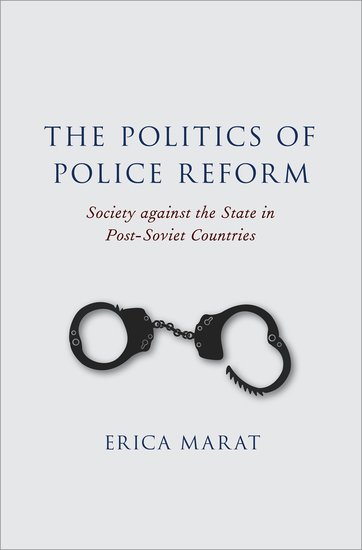
Society against the State in Post-Soviet Countries

Society against the State in Post-Soviet Countries

What does it take to reform a post-Soviet police force? This book explores the conditions in which a meaningful transformation of the police is likely to succeed and when it will fail. Based on the analysis of five post-Soviet countries that have officially embarked on police reform efforts, Erica Marat examines various pathways to transforming how the state relates to society through policing.
Levertijd op aanvraag
There is a Russian saying that "police mirror society." The gist of this is that every society is policed to the extent that it allows itself to be policed. Centralized in control but decentralized in their reach, the police are remarkably similar in structure, chain of command, and their relationships with the political elite across post-Soviet nations--they also remain one of the least reformed post-communist institutions.
As a powerful state organ, the Soviet-style militarized police have resisted change despite democratic transformations in the overall political context, including rounds of competitive elections and growing civil society. While consensus between citizens and the state about reform may be possible in democratic nations, it is considerably more difficult to achieve in authoritarian states. Across post-Soviet countries, such discussions most often occur between political elites and powerful non-state actors, such as criminal syndicates and nationalistic ethnic groups, rather than the wider citizenry. Even in countries where one or more rounds of democratic elections have taken place since 1991, empowered citizens and politicians have not renegotiated the way states police and coerce society. On the contrary, in many post-Soviet countries, police functions have expanded to serve the interests of the ruling political elites.
What does it take to reform a post-Soviet police force? This book explores the conditions in which a meaningful transformation of the police is likely to succeed and when it will fail. Departing from the conventional interpretation of the police as merely an institution of coercion, this book defines it as a medium for state-society consensus on the limits of the state's legitimate use of violence. It thus considers policing not as a way to measure the state's capacity to coerce society, but rather as a reflection of a complex society bound together by a web of casual interactions and political structures. The book compares reform efforts in Ukraine, Georgia, Kyrgyzstan, Kazakhstan, and Tajikistan, finding that bottom-up public mobilization is likely to emerge in the aftermath of transformative violence--an incident when the usual patterns of policing are interrupted with unprecedented brutality against vulnerable individuals. Ultimately, The Politics of Police Reform examines the various pathways to transforming how the state relates to society through policing.